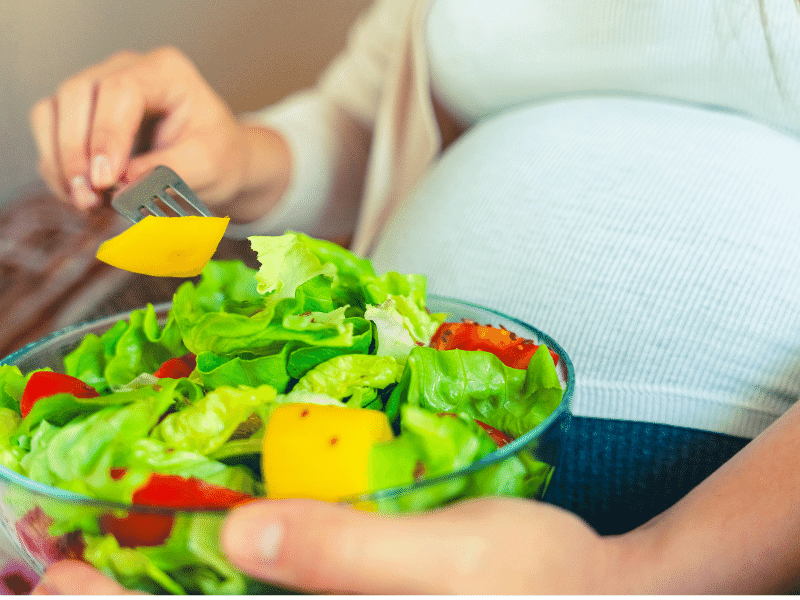Healthy Eating Habits During Pregnancy

Nourishing You and Your Baby
Healthy eating habits during pregnancy are essential for both you and your baby’s well-being. A well-balanced diet ensures that you get the necessary nutrients to support your baby’s growth and development while also maintaining your own health. Here are some guidelines for nourishing yourself and your baby during pregnancy:
- Consult with a Healthcare Provider : Before making any significant changes to your diet, it’s important to consult with your healthcare provider. They can provide personalized guidance based on your individual health needs.
- Folate and Folic Acid : Folate is essential for preventing birth defects of the baby’s brain and spine. Foods rich in folate include leafy greens, citrus fruits, beans, and fortified cereals. Your doctor may also recommend a folic acid supplement.
- Iron : Iron is crucial for preventing anemia during pregnancy. Good sources of iron include lean meats, poultry, fish, beans, and iron-fortified cereals.
- Calcium : Calcium is essential for the development of your baby’s bones and teeth. Dairy products like milk, yogurt, and cheese are excellent sources. If you’re lactose intolerant or vegan, consider calcium-fortified plant-based milk and leafy greens.
- Protein : Protein is important for the growth of your baby’s organs, muscles, and tissues. Include lean meats, poultry, fish, eggs, beans, and nuts in your diet.
- Fiber : Fiber helps prevent constipation, which is common during pregnancy. Whole grains, fruits, vegetables, and legumes are rich in fiber.
- Healthy Fats : Omega-3 fatty acids, found in fatty fish like salmon and trout, are important for your baby’s brain and eye development. Nuts, seeds, and avocado also provide healthy fats.
- Limit Processed Foods : Minimize your intake of processed foods, sugary snacks, and sugary beverages. These foods can lead to excessive weight gain and may not provide the necessary nutrients.
- Stay Hydrated : Drink plenty of water to stay hydrated. Dehydration can lead to complications like constipation and preterm labor.
- Moderate Caffeine : Limit your caffeine intake as excessive caffeine can increase the risk of miscarriage. Stick to moderate amounts, such as one or two cups of coffee per day.
- Avoid Alcohol and Tobacco : Both alcohol and tobacco can harm your baby’s development. It’s best to avoid them completely during pregnancy.
- Food Safety : Be cautious with food safety. Avoid undercooked or raw seafood, eggs, and meats, as they can carry harmful bacteria. Also, wash fruits and vegetables thoroughly.
- Small, Frequent Meals : Eating smaller, more frequent meals can help alleviate pregnancy-related nausea and heartburn.
- Listen to Your Body : Pay attention to your body’s signals of hunger and fullness. It’s normal to have increased appetite during pregnancy, but try to make healthy food choices.
- Supplements : Your healthcare provider may recommend prenatal vitamins to ensure you’re getting all the necessary vitamins and minerals. Do not take additional supplements without their guidance.
- Gestational Diabetes : If you’re at risk of gestational diabetes, your healthcare provider may recommend a special diet. Follow their advice closely.
Remember that every pregnancy is unique, and individual needs may vary. It’s crucial to work closely with your healthcare provider to develop a personalized nutrition plan that meets your specific requirements. Healthy eating habits during pregnancy can significantly impact your baby’s health and development, so prioritize your well-being and that of your growing child.

0 Comments